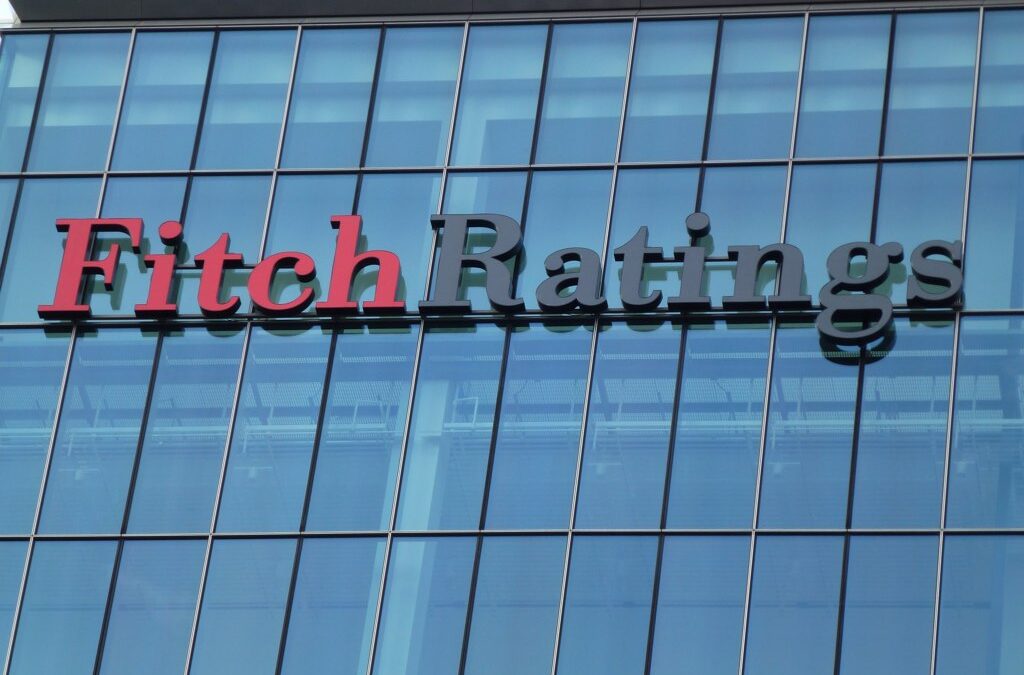Keep our news free from ads and paywalls by making a donation to support our work!

Notes from Poland is run by a small editorial team and is published by an independent, non-profit foundation that is funded through donations from our readers. We cannot do what we do without your support.
Credit ratings agency Fitch has revised Poland’s outlook to negative in its latest report, citing concern over “deteriorating public finances” and growing “political polarisation”.
The decision prompted Poland’s finance minister to blame the president – who is aligned with the opposition Law and Justice (PiS) party – for the situation. However, a presidential advisor and PiS figures accused the government of trying to shift the blame for its poor management of public finances.
🚨🚨🚨Fitch zmienia perspektywę Polski na negatywną. 📉 Rząd rozszczelnił system podatkowy i nie panuje nad finansami publicznymi. Deficyt rośnie szybciej niż w innych krajach regionu, a dług coraz większy i droższy! https://t.co/chX0SZhcVh
— Piotr Nowak (@PiotrNowak_PL) September 6, 2025
On Friday afternoon, Fitch announced that it was maintaining Poland’s credit rating at A- but was changing the country’s outlook – which indicates the likely future direction of the rating – from stable to negative. It is the first time since Poland rose to A- level in 2007 that its outlook has been negative.
The agency pointed to Poland’s “deteriorating public finances” as a key factor in its decision. It forecasts that this year’s government deficit will hit 6.9% of GDP, up from 6.6% in 2024, 5.3% in 2023 and just 1.7% in 2021.
That has been driven by “significant rises in public wages, pensions, social programmes and debt servicing costs”, noted Fitch, as well as a rapidly rising defence budget.
The agency also cited the “increased political challenges” Poland faces in bringing its public finances under control, pointing in particular to the election this year of opposition-aligned President Karol Nawrocki, who took office in early August.
“The start of President Karol Nawrocki’s term highlights likely challenges for the coalition government to implement policy,” wrote Fitch, pointing to the fact that Nawrocki has already vetoed a number of government bills and pledged to oppose proposed tax increases.
“In an environment of high political polarisation…the influence of domestic political considerations on policy choices is likely to increase ahead of the next parliamentary elections, due by October 2027,” added the agency.
“This could reduce the room to implement politically challenging measures before 2028, including those supporting fiscal consolidation.”
At a meeting between the government and new president, @NawrockiKn criticised @donaldtusk's administration for a record budget deficit.
Tusk, meanwhile, said his government "has found ways" to circumvent Nawrocki's veto of a law on building wind farms https://t.co/gSSiCnBJYP
— Notes from Poland 🇵🇱 (@notesfrompoland) August 27, 2025
In a response, Poland’s finance minister, Andrzej Domański, wrote on social media that Fitch’s “decision is a consequence of, among other things, President Nawrocki’s blocking of key legislation, which limits the scope for strengthening the economy’s foundations and necessary fiscal consolidation”.
“Our government has rebuilt economic growth, unemployment remains low, and inflation is falling the fastest in Europe,” added Domański.
“We are acting to combine stable finances with investments and necessary security expenditures. Nevertheless, this is a warning signal that everyone – including the President and his advisors – should take note of.”
Agencja Fitch potwierdziła rating Polski na poziomie A-, obniżając jednak jego perspektywę. Decyzja to konsekwencja https://t.co/Ad2dByW8tr. blokowania przez Prezydenta Nawrockiego kluczowych ustaw, co ogranicza przestrzeń do wzmocnienia fundamentów gospodarki i niezbędnej…
— Andrzej Domański (@Domanski_Andrz) September 5, 2025
However, Leszek Skiba, an economic advisor to Nawrocki and former deputy finance minister under PiS, hit back at Domański, saying that Nawrocki’s power to veto bills could only have a limited effect on the government budget.
“The agency [Fitch] assessed a deficit of 272 billion zloty, growing debt, a declared deficit of 6.5% of GDP – and not 16 billion zloty from tax bills that can be vetoed,” wrote Skiba. “How does 16 billion compare to 272 billion?”
Meanwhile, former PiS Prime Minister Mateusz Morawiecki, noted that “such [ratings] decisions are not made overnight – they are the result of problems in public finances that have been growing for many months”.
Morawiecki argued that the main catalyst for the negative outlook was the government’s recently published draft budget for 2026, which he said had been a “negative surprise for markets”.
Praca milionów Polek i Polaków idzie na marne.
Wielu urzędników państwowych i nasza ekipa polityczna przez 8 lat walczyło o stabilne finanse publiczne. W czasie pandemii, europejskiego kryzysu energetycznego i wojny za wschodnią granicą potrafiliśmy zagwarantować stabilność…— Mateusz Morawiecki (@MorawieckiM) September 6, 2025
Sławomir Dudek, president of the Institute of Public Finance, a think tank, noted that Fitch had issued its decision despite Poland recently recording “solid growth” and becoming the world’s 20th largest economy, with its GDP set to surpass the $1 trillion mark.
Dudek said that the negative outlook is the result of “the populism trap we fell into in 2015”, the year that the former PiS government came to power and began to boost public spending.
While it was “PiS that set the debt train in motion, the current government has added fuel”, argued Dudek. “As a result, we have Swedish-level [high public] spending and a course towards Irish-level [low] taxes. This is an unsustainable model.”
Mimo solidnego wzrostu, mimo faktu, że Polska stała się 20 gospodarką świata, agencja Fitch obniżyła perspektywę ratingu dla Polski ze stabilnej na negatywną. To jest konsekwencja wysokiego deficytu i bardzo szybkiego tempa wzrostu długu. Rozpędzony pociąg długu to rezultat… pic.twitter.com/0ViBBNEwhl
— Sławomir Dudek (@DudSlaw) September 5, 2025

Notes from Poland is run by a small editorial team and published by an independent, non-profit foundation that is funded through donations from our readers. We cannot do what we do without your support.
Main image credit: Gideon Benari/Flickr (under CC BY 2.0)

Daniel Tilles is editor-in-chief of Notes from Poland. He has written on Polish affairs for a wide range of publications, including Foreign Policy, POLITICO Europe, EUobserver and Dziennik Gazeta Prawna.



















